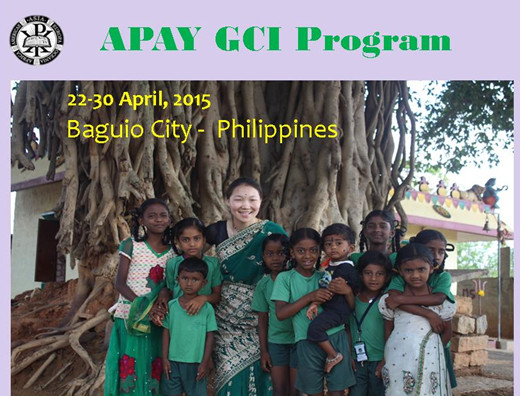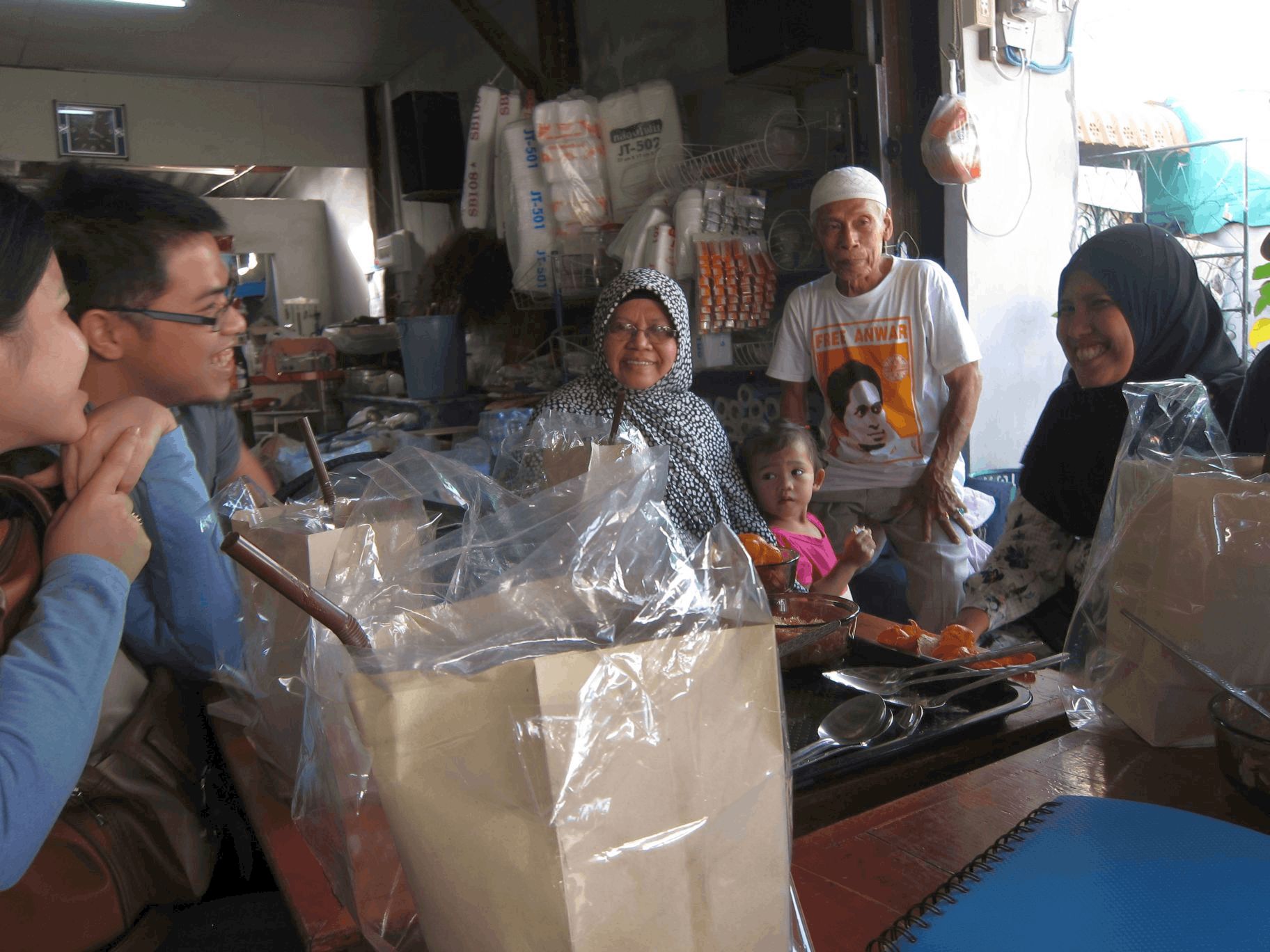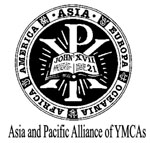Quasquicentennial Founding Anniversary of the Indian YMCAs
The National Council of YMCAs of India celebrated the official launch of their Quasquicentennial Anniversary (125th anniversary) on February 20, 2015 with a Thanks Giving Prayer Service in the afternoon at the premises of Madras YMCA, Chennai. Madras YMCA too has been celebrating their 125th year of founding simultaneously. The Governer of Tamil Nadu, Dr. K. Rosaiah was the chief guest of the occasion. He also handed over the lifetime awards to distinguished YMCA members both lay and professionals.
The president of the World Alliance of YMCAs Mr. Peter Posner was the guest of honor at the ceremony. Mr. Roland Werner, National General Secretary of the German National Council of YMCAs delivered the key note address, while Mr. Kohei Yamada, General Secretary of APAY expressed words of felicitation.
Around 50 overseas delegates representing various YMCAs including, Australia, South Korea, England, USA, Germany, Dubai, Bahrain, Sharjah, Ajman, Bangladesh, Sri Lanka, Palestine were present on the occasion. Delegates from Asia & Pacific Alliance of YMCAs, Africa Alliance of YMCAs and Y’s Men International participated at the ceremony to express their solidarity with the Indian YMCAs on this auspicious occasion. Duncan Chowdhury, Executive Secretary and Chan Beng Seng, GATN Coordinator of APAY also participated at the ceremony.
Dr. Rolland Williams, President of the National Council of YMCAs of India presided over the ceremony while Mr. Ch.R.P. Mani Kumar, National General Secretary was the master of ceremonies.
Various local YMCAs of India echoed by hosting quasquicentennial celebrations in the following days, wherein the members of the overseas YMCA delegations participated. The APAY takes this opportunity to congratulate the members of the Indian YMCAs on this grand occasion.
~ Duncan Chowdhury, Executive Secretary
APAY Global Citizenship Institute
|

|
| ↑ 1st GCI Participants spends time with community children in India. |
APAY promotes Global Citizenship Institute (GCI). The 2nd Asia and Pacific Alliance of YMCAs Global Citizenship Institute will be held on 22- 30 April 2015 in Baguio City, Philippines. This gathering is mainly a platform to educate potential youth staff and youth reps to advance the Global Citizenship programs in their respective YMCAs and communities. During GCI, participants will be given opportunity to interact with the children, the youth and the women in the communities. This three-day exposure program is a venue for the participants to experience and understand the people’s struggles as they live with local host families. It is also through this activity that they can identify social issues, reflect on their experiences and propose for actions to be done in the community and their own local community through YMCA.
Through the GCI, more young people are nurtured to keep a stronger sense of belongingness in their own communities and as such they become more sensitive and concern over the social issues affecting people’s lives. Global Citizenship Education is a tool that would create active youth in the YMCAs through the understanding of concepts, experiencing social issues, applying the learning and leading the YMCA to ACT in their communities.
APAY firmly believes that through GCI and various regional trainings, the Youth Staff particularly the Youth Reps shall take the lead in bringing about necessary social change.
~ Roger Peiris, Youth Development Officer
International Women's Day
What does it mean to celebrate International Women’s Day? Does the call of century old tradition of IWD to press for women’s demands for equality still make sense?
The impoverished situation of the marginalized sector of women around the world continues. In various communities, majority of women regardless of race, creed and color, are suffering from the effects of unfair division of labor, low salary and wages, poor working conditions, unavailability of health and social services, land grabbing, violence and many more other concerns. Participants to the APAY Advance Training of Trainers in Gender Mainstreaming held in Thailand echoed the same oppressive situations encountered by the women in Asia and Pacific.
APAY Advance Training of Trainers in Gender Mainstreaming key issues faced by women in Asia and Pacific region:
- Violence against women and suppression of women – falling sex ratio and acid attacks
- Marginalization from Political Participation
- Poverty – Hunger and Malnutrition
- Dowry & Caste-based discrimination
- Religious and Cultural restrictions
- Gender discrimination in labor & Low wages for women
- Human Trafficking – Sex and Labor
- Low literacy
- Migration
- Denial of property rights
- Limited access to health care
These sad realities ironically prevail amidst the claim of economic institutions and political powers that progress shall have a ‘trickle-down’ effect. Thus, the IWD celebration is a shared platform for more voices to be heard as a campaign for transformative change. This is a time to remember the struggles fought, reflect on the progress made, call for change and honor the determination and courage of the women who played vital role in the history of their communities and countries.
Together with the global community, the International Women’s Day brings integral support as we strengthen our movement’s capacity to make actions that advance women’s rights and call for equality. More importantly, the celebration is a meaningful reminder to the fulfillment of our mission as concretely expressed in Challenge 21 – ‘to empower all, especially the young people and women to take increased responsibilities and assume leadership at all levels and working towards an equitable society’; and to advocate for and promote the rights of women and upholding the rights of children.’
~ Cristina Miranda, Executive Secretary
Southern Thailand provides good venue for ICF Human Rights Workshop
The Thai provinces of Pattani, Yala and Narathiwat, known as the Deep South, have regularly been the scene of shootings and bomb attacks since 2004. As a result, martial law has been in effect for approximately 10 years in this part of the country, allowing the army and police, among other things, to arrest people without a warrant and limiting safeguards on torture. While no group has claimed responsibility for the shootings and bombings, it is widely believed that the attackers seek to become part of neighboring Malaysia as the people of the Deep South share a similar language, culture and the Islamic faith—an identity that has more in common with people in Malaysia than it does with other members of Thai society in this predominantly Buddhist country.
It was because of this environment that nearby Songkhla Province was chosen as the site for a Southeast Asia subregional human rights workshop conducted by Interfaith Cooperation Forum (ICF) from Jan. 31 to Feb. 4. The frequent and ongoing human rights violations in the Deep South provided an opportunity to learn more about the problems in this part of the country, which receive little media coverage outside of the country, and for the participants to gain a better understanding of human rights and how Thai human rights groups in the Deep South are responding to human rights violations. At this workshop, there were nearly 20 participants from Cambodia, East Timor, Indonesia, Laos and the Philippines as well as Thailand who had attended ICF’s School of Peace (SOP) in the past or were people recommended by SOP alumni in their countries.
The overall thrust of the program was to give the participants a clear understanding of what are people’s rights and to share the values embedded in Asia’s faiths that form the foundation of human rights—a reverence for life, the equality of all people, non-violent responses to issues, compassion and justice as a thread connecting human relationships in society. The group also discussed the obstacles that impede people’s enjoyment of their rights, such as a lack of political will to prevent and prosecute human rights violations, corruption, impunity and weak institutions, and lastly offered some ways to educate people about their rights and to respond when there are human rights violations.
This workshop marked the first time that SOP alumni that ICF has been training since 2012 to be human rights resource people conducted part of the program with ICF staff member Bruce Van Voorhis.
As already noted, the Deep South is an incubator of human rights violations. Consequently, a one-day field visit was part of the workshop program. After visiting two local human rights organizations and others, it became clear that torture is a major human rights concern in the area. One resource person remarked that “this is probably the most violent part of Asia that no one has ever heard of.”
One reason for the lack of information about the violence and human rights violations in the Deep South is the limited ability of local human rights activists to communicate in English—an impediment to understanding that they realize and which they are working to rectify.
Another reason for holding this program in the Deep South is that one of ICF’s SOP alumni, Muhamad Anwar, is imprisoned for allegedly belonging to a separatist organization. When he attended SOP in 2010 in India, he had already been convicted and sentenced to 12 years in prison in his first trial in 2007 and had served one year in prison. During a hearing before the Court of Appeal in 2009, however, he was cleared of all charges and released because of a lack of evidence. Romuelah Saeyeh, his wife and another 2010 SOP alumni member as well as a participant in this human rights workshop, said that the only evidence against him was that he had talked about the issues in the Deep South in a coffee shop and that he had been seen exercising in a public park, supposedly indicating that he was preparing to be a fighter. The Supreme Court of Thailand though reinstated the original court’s verdict and sentence in 2013 without offering any reasons. While in prison, he has also been accused of killing a Buddhist monk, raising additional questions about the competency of the Thai justice system and further supporting the claims of Anwar and Romuelah that he is innocent. As in most cases like Anwar’s, injustice only intensifies people’s determination to one day experience and savor the joy of justice.
|

|
↑ The parents of imprisoned School of Peace alumni Muhamad Anwar, center, trying patiently to wait for justice and Anwar's release, meet with participants of Interfaith Cooperation Forum's human rights workshop during their field visit.
|
~ Bruce Van Voorhis, ICF Coordinator
|





